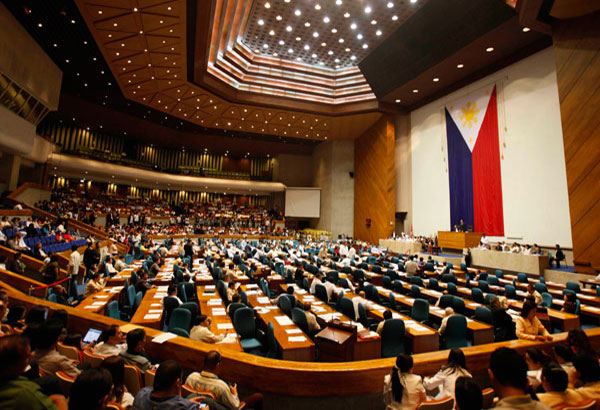
Cha-cha gets going
MANILA, Philippines - Floor debates over proposals to change economic provisions of the Constitution kicked off at the House of Representatives yesterday, with one of the proponents stressing that the effort is more about making future economic legislation responsive to Filipinos’ needs than giving foreigners the right to own land.
Davao City Rep. Mylene Garcia-Albano, who chairs the committee on constitutional amendment, made this clear in response to interpellation of Resolution of Both Houses No. 1 (RBH 1) by Akbayan party-list Rep. Walden Bello.
The plenary debates ended at past 7 p.m.
Albano said any proposed amendment to economic provisions of the Constitution would not be automatically written and adopted even if the resolution being discussed in the House is approved and ratified by the people.
Albano was the first to defend RBH 1 yesterday.
RBH 1, principally authored by Speaker Feliciano Belmonte Jr., seeks to include the phrase “unless otherwise provided by law” in some sections of Articles XII (national economy and patrimony), XIV (education, science and technology, arts, culture and sports) and XVI (general provisions).
This means the constitutional restrictions on foreign ownership will remain until Congress enacts specific laws to remove them.
In his interpellation, Bello pointed out that China, Indonesia and Vietnam have the same constitutional restrictions on foreign ownership of land but these did not hinder the massive flow of foreign investments to their economies.
“We have seen that in the most dynamic economies in Southeast Asia, constitutional ban on foreign ownership was not in fact a hindrance – it’s something that foreign investors have learned to live with,” Bello said.
Albano, however, pointed out that RBH 1 does not contemplate on directly writing amendments to the Constitution but only seeks to allow the country to adjust or adapt to future economic realities and contingencies.
She said the parliaments of China, Indonesia and Vietnam have passed numerous laws that tend to ease economic restrictions in their respective constitutions.
“That’s not the objective. We’re not saying we’re going to remove them (restrictions). We want to provide flexibility to our country on crafting economic policies to meet the exigencies that come our way,” Albano told Bello.
She said China has allowed long-term lease of up to 99 years for land, while Vietnam and Indonesia have also enacted laws that allow full repatriation of earnings of investors, among other legislation passed to attract investments.
Albano said land ownership is not the only concern addressed by RBH 1, but also other sectors and aspects of the economy.
She noted Congress recently ratified a bill allowing full foreign ownership of banks.
Leaders of the chamber said they would try to speed up passage of RBH 1 to protect it from possible attempts by some lawmakers to dilute it with proposals to amend the political provisions of the Constitution to allow President Aquino to seek another term.
A counterpart measure, authored by Sen. Ralph Recto, is pending in the Senate.
Belmonte earlier expressed confidence that there would not be much fuss over RBH 1 as it is aimed at attracting investments and boosting employment.
“This is just a simple change. The door (to investments) is still locked and we have to provide a legal key,” the Speaker said. “I suppose all the countries around us, in fact, have always been ahead in the area of foreign direct investments, so we really have to start thinking on what we should do.”
He said positive economic developments and high foreign investor confidence provide further justification for removing constitutional obstacles to investments. - philSTAR








